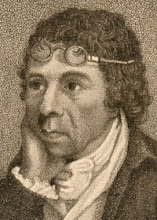Entered Apprentice
In the Entered Apprentice Degree, the candidate is given his first opportunity to prove himself by his ability to fulfill a solemn obligation and to keep secret those things entrusted to him as such, while certain moral lessons are taught to him. The Working Tools of the Entered Apprentice are the Twenty-Four Inch Gauge, and the Common Gavel. The Twenty-Four Inch Gauge was used by operative Masons to measure and lay out their work, but as speculative Masons we are taught to use it to divide the day into twenty four equal parts, where we find eight hours for duty to God and our fellow man, eight hours for our usual vocation, and eight hours for refreshment and sleep. The Common Gavel was used by operative Masons to break off the rough edges of stones and fit them for the builder's use. We use it for the purpose of divesting our minds of the vices and superfluities of life, to prepare ourself to be fit for the Great Architect's use in constructing His spiritual building.
Fellow Craft
The Fellow Craft Degree places the candidate under an additional solemn obligation concerned primarily with his duties to his Brethren and the Craft. He is encouraged to become educated in the seven liberal arts and sciences: Grammar, Rhetoric, Logic, Arithmetic, Geometry, Astronomy, and Music. The working tools of a Fellow Craft Mason are the Square, the Level, and the Plumb, all of which are used to try our work. The candidate is taught many particulars concerning the Building of King Solomon's Temple and is informed of the custom of the men who worked at the building of King Solomon's Temple to gather and receive their wages. The Mason is here taught about the symbolic wages of a Fellow Craft: Corn, Wine, and Oil. If a Mason chooses to proceed on to the Capitular degrees in York Rite, he will at that time learn more about being a Fellow Craft Mason, including their actual wages.
Master Mason
The Master Mason Degree places the candidate under a much more solemn and weighty obligation, which concerns his behaviors and duties towards his Brethren, and also to widows and orphans. The Legend of this Degree is the most characteristic and influential in Masonry: The tragic death of our Grand Master Hiram Abiff, just prior to the completion of the Temple, and the associated loss of The Ancient Master's Word. The working tools of a Master Mason are all the implements of Masonry, but most especially the Trowel. The Trowel was used by operative Masons to spread the mortar which unites the bricks of a building into one single mass. We use the Trowel for spreading the cement of Brotherly Love and Affection. Upon completing the proficiency of the Master Mason degree, a brother is able to hold office in his Lodge, continue his Masonic education by petitioning one of the concordant bodies such as the Royal Arch Chapter of the York Rite or the Ancient and Accepted Scottish Rite, or pursue the philanthropic opportunities available in Masonry through the Shrine Club or other Masonic organizations dedicated to such work.
Government of Symbolic Masonry
Masonic Lodges are governed over by a Grand Lodge, and each Grand Lodge is sovereign in its jurisdiction. Each Grand Lodge has a criteria to determine which other Grand Lodges are considered "regular" for the purpose of allowing communication and visitation between jurisdictions.
The United Grand Lodge of England (UGLE) was formed in 1717, and all regular Masonry today derives from this "Mother" Grand Lodge.
Jurisdictions in the United States are shared between the "traditional" Grand Lodges and Prince Hall Grand Lodges, which have always been regular in every way except for constitutional separation, and are currently working their way to full recognition.
See below for a list of Masonic Grand Lodges considered regular by the UGLE.
Suscribirse a:
Enviar comentarios (Atom)





No hay comentarios:
Publicar un comentario